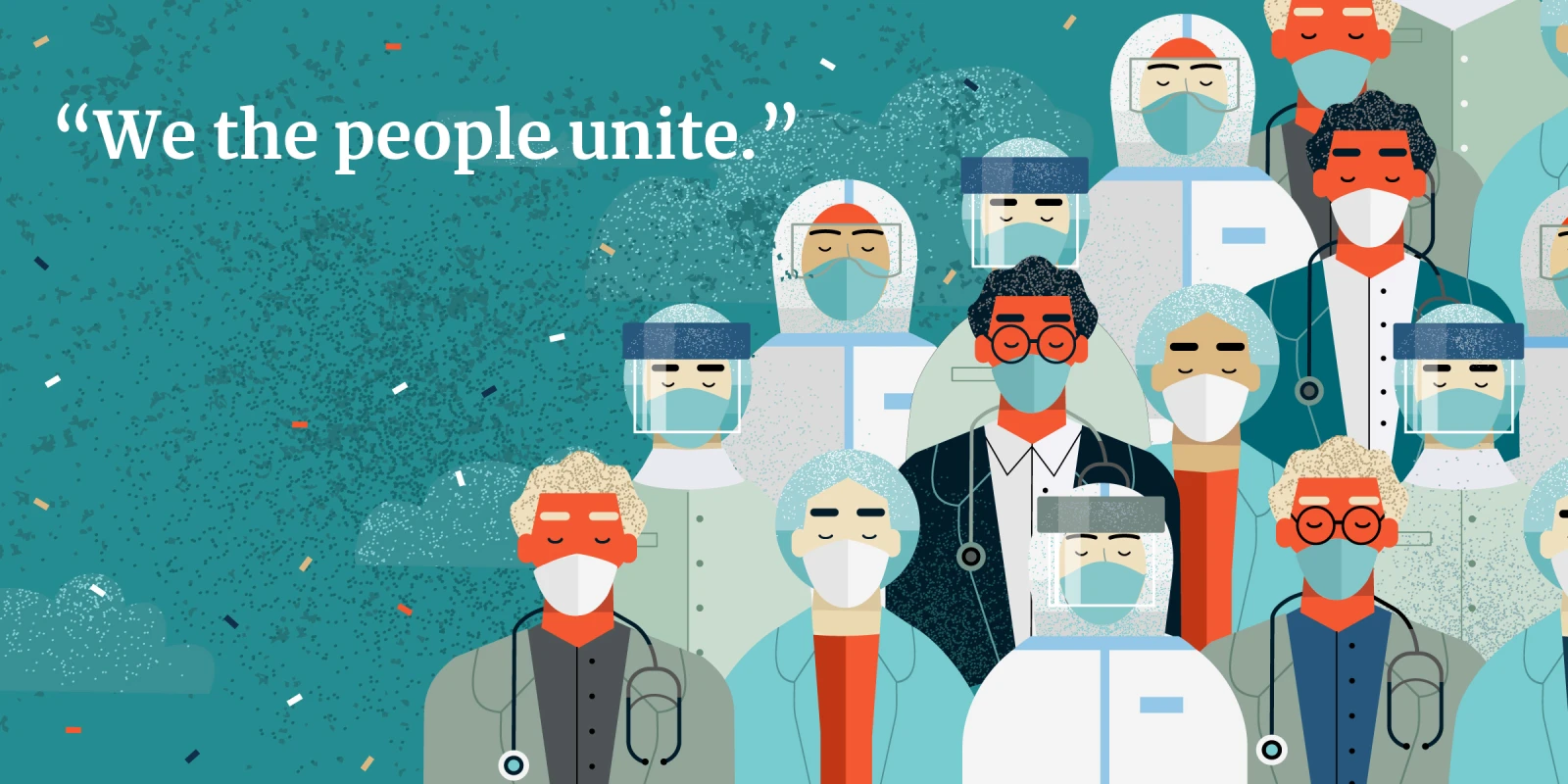This is part of the Medical Humanities series on Op-Med, which showcases creative work by Doximity members. Do you have a creative work related to your medical practice that you’d like to share? Send it to us here.
In strangest times, under disquieting skies;
A beast has killed, another beast of vile.
Slid from her face, goddess’ ornate veil;
Distraught is the votary, as the illusion breaks.
The high priests lounge, in their palaces surfeit;
Their devout bewildered, starve on the street.
On the flotsam of kings, we stand with might;
The beasts of vile, we the people shall smite.
No longer bewitched, are the hearts and minds;
We abandon the merchants, of hate and divide.
Betrayed and forsaken, by our masters of past;
We lay bare the ruse, of delusions they cast.
Destitute but woke, we the people combine;
And we alone have slayed, the beasts of vile.
What was your inspiration? Did other creative works, if any, influence your creation of this piece?
It was COVID-19 and its ongoing ramifications that inspired me. How COVID-19 disrupted the whole illusion of the world and exposed many things that we overlooked. Thousands of front-line workers and thousands of Americans lost their lives. People who worked hard all their lives and did everything right now struggle to keep food on their table. All the while we live in the richest country in the world. The very rich remain unscathed — obviously — or grow even more. The two beasts mentioned in the poem are COVID-19 and an unfair system of the global economy. The high priests are the rich and famous, who get by just fine, while their followers and supporters who idealize them fight hunger and insecurity. Our leaders didn't help us as they should have, and common people were left on their own. You become a leader and assume positions in prestigious offices not for showmanship but to stand up to occasions. During this time, we also see the kindness of a common person to others and realize that our strength lies in our unity and love. I think, with this in mind, my poem might make more sense. If you ask me what inspired me in one line, "suffering and yet resilience of a common person." Health care workers across the world have become the face of this pandemic. The struggles of doctors, nurses, and medical technicians are just a representation of the challenges faced by everyone from every walk to life.
How long have you been doing this activity? What got you started? How do you relate it to your medical practice?
I used to play in a rock band. Back then, I wrote between 40 to 50 songs. I have also published a book, which includes some poetry. However, this is the first time I have written a stand-alone poem. This COVID-19 pandemic is the most remarkable thing many of us have ever experienced. The piece relates to my medical practice because I see the clinical complications in our patients and also its disruptive effects on their lives, like loss of their loved ones and financial insecurities. It is a catastrophe.
Is there anything else you'd like to tell us about your involvement in or views on arts in medicine?
In the medical field, we are in the business of healing. This disease doesn't just affect body organs but also the psychology of the patients and their overall sense of well-being. You may cure the apparent disease, but the overall impact may have a much larger impact on the ill. Therefore, I think arts in medicine is a tool to address those aspects which medical science sometimes overlooks. For us, as a medical community, it's a way to draw the attention of our colleagues toward those often-ignored issues.
Hamza Lodhi is a cardiology fellow at Florida Atlantic University. In addition to being passionate about medicine, he also has a deep interest in philosophy, music, and sociology. He has previously published a novel under pseudonym Noah H. Milhouse. He is a proud father of two naughty boys and married to a wonderful dentist.
Image: Ardea-studio / shutterstock







